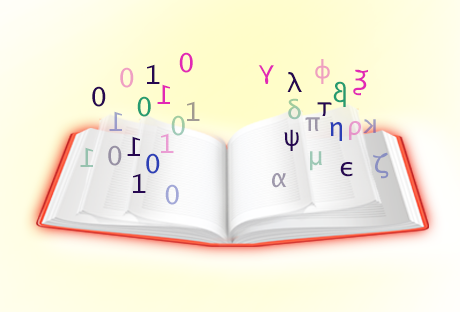JavaScript is disabled for your browser. Some features of this site may not work without it.
| dc.contributor.author | Αλεξανδρίδης, Αλέξανδρος Π. | el |
| dc.contributor.author | Χονδροδήμα, Ευαγγελία | el |
| dc.contributor.author | Σαρίμβεης, Χαράλαμπος Κ. | el |
| dc.date.accessioned | 2015-06-03T18:51:42Z | |
| dc.date.issued | 2015-06-03 | |
| dc.identifier.uri | http://hdl.handle.net/11400/15005 | |
| dc.rights | Αναφορά Δημιουργού-Μη Εμπορική Χρήση-Όχι Παράγωγα Έργα 3.0 Ηνωμένες Πολιτείες | * |
| dc.rights.uri | http://creativecommons.org/licenses/by-nc-nd/3.0/us/ | * |
| dc.source | http://ieeexplore.ieee.org/ | en |
| dc.subject | Fuzzy means algorithm | |
| dc.subject | Fuzzy partition | |
| dc.subject | Nonsymmetric partition | |
| dc.subject | Particle swarm optimization | |
| dc.subject | Radial basis functions | |
| dc.subject | Αλγόριθμος ασαφών μέσων | |
| dc.subject | Βελτιστοποίηση σμήνους σωματιδίων | |
| dc.subject | Ακτινική συνάρτηση βάσης | |
| dc.title | Radial basis function network training using a nonsymmetric partition of the input space and particle swarm optimization | en |
| heal.type | journalArticle | |
| heal.classification | Technology | |
| heal.classification | Electrical engineering | |
| heal.classification | Τεχνολογία | |
| heal.classification | Ηλεκτρολογία Μηχανολογία | |
| heal.classificationURI | http://id.loc.gov/authorities/subjects/sh85133147 | |
| heal.classificationURI | http://zbw.eu/stw/descriptor/18426-4 | |
| heal.classificationURI | **N/A**-Τεχνολογία | |
| heal.classificationURI | **N/A**-Ηλεκτρολογία Μηχανολογία | |
| heal.keywordURI | http://id.loc.gov/authorities/subjects/sh2002004691 | |
| heal.identifier.secondary | DOI: 10.1109/TNNLS.2012.2227794 | |
| heal.dateAvailable | 10000-01-01 | |
| heal.language | en | |
| heal.access | forever | |
| heal.publicationDate | 2013 | |
| heal.bibliographicCitation | ALEXANDRIDIS, A.P., CHONDRODIMA, E. & SARIMVEIS, H.K. (2013). Radial basis function network training using a nonsymmetric partition of the input space and particle swarm optimization. IEEE Transactions on Neural Networks and Learning Systems. [online] 24 (2). p. 219-230, 6395832. Available from: http://ieeexplore.ieee.org/ | en |
| heal.abstract | This paper presents a novel algorithm for training radial basis function (RBF) networks, in order to produce models with increased accuracy and parsimony. The proposed methodology is based on a nonsymmetric variant of the fuzzy means (FM) algorithm, which has the ability to determine the number and locations of the hidden-node RBF centers, whereas the synaptic weights are calculated using linear regression. Taking advantage of the short computational times required by the FM algorithm, we wrap a particle swarm optimization (PSO) based engine around it, designed to optimize the fuzzy partition. The result is an integrated framework for fully determining all the parameters of an RBF network. The proposed approach is evaluated through its application on 12 real-world and synthetic benchmark datasets and is also compared with other neural network training techniques. The results show that the RBF network models produced by the PSO-based nonsymmetric FM algorithm outperform the models produced by the other techniques, exhibiting higher prediction accuracies in shorter computational times, accompanied by simpler network structures. | en |
| heal.publisher | IEEE | en |
| heal.journalName | IEEE Transactions on Neural Networks and Learning Systems | en |
| heal.journalType | peer-reviewed | |
| heal.fullTextAvailability | false |
Αρχεία σε αυτό το τεκμήριο
| Αρχεία | Μέγεθος | Μορφότυπο | Προβολή |
|---|---|---|---|
|
Δεν υπάρχουν αρχεία που σχετίζονται με αυτό το τεκμήριο. |
|||
Οι παρακάτω άδειες σχετίζονται με αυτό το τεκμήριο:








